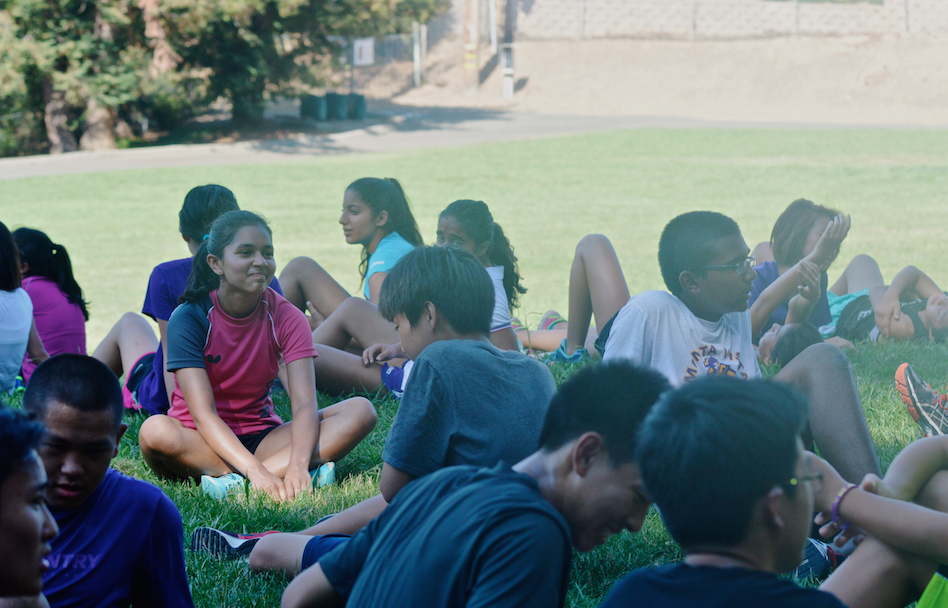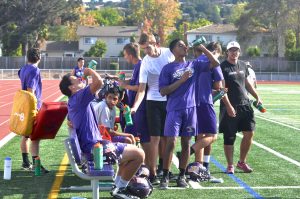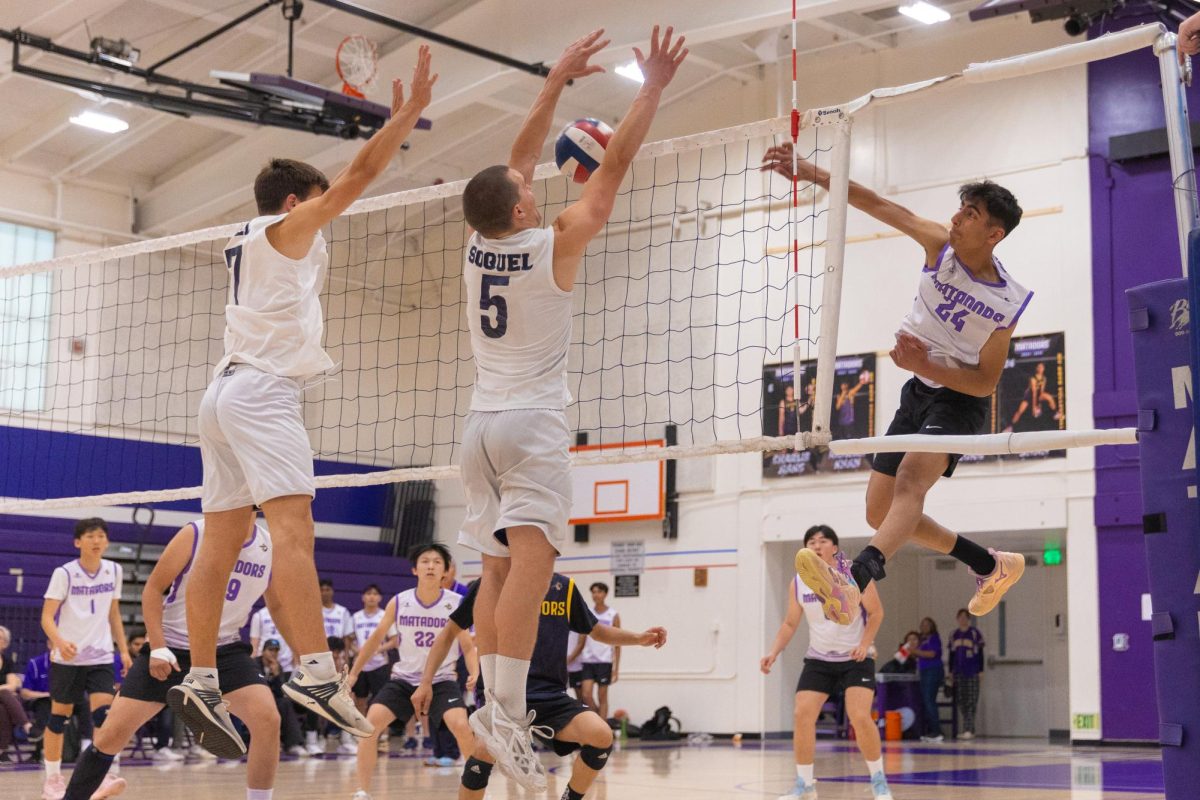
In the last week, Sept. 7 to Sept. 11, MVHS faced extreme heat with a record high temperature of 100 degrees. As students find relief quickly moving from their air-conditioned classrooms to their air-conditioned homes, athletes face the heat in both practices and games. While the hot weather seems unbearable, the common mantra amongst teams is that the season must go on.
“You can’t control the weather during a meet and if we’re not well-adjusted to running in the heat, then we’re not going to do well in the races,” cross country freshman Anushka Tandon said. “We can’t control when the races are going to be or what time they’re going to be, so it’s important to be able adjust to heat.”
As Tandon explained, most teams have to remain competitive in their team regardless of weather conditions. For the athletes, it’s worse to remain inactive than to just weather the weather.
Both cross country and football have found ways to adjust. Cross country coach Kirk Flatow made morning runs available for the team so they don’t have to endure the afternoon sun. For those who can’t come in the morning, the afternoon runs are at Linda Vista Park where there is more shade. Flatow also provided water bottles, ice, fruit pops and juice pops for runners during practices.
“He gave us these ice cubes to hold in our hands because we maintain our body heat through our hands,” four year cross country runner senior Madeleine Yip said. “It’s not as fancy as how these professionals have these fancy gloves but it’s still pretty good.”
Photos by Malini Ramaiyer
Yip describes how she and some other girls will change up their routine and go for pool-runs when it’s just too hot. They hop into the pool with floatation devices and run against the resistance of the water.
“That’s a really good form of exercise because a lot of college teams use that as a form of cross-training,” Yip said. “It has less stress on your legs, but it’s also good if you’re really hot.”
The football team’s main modification has been limiting practice to playing with no gear. In place of their full outfits, the Matadors wear shorts, T-shirts and helmets to practice. While taking off their gear is a notch down in intensity, football coach Jeff Mueller makes sure the players are still working hard.
Photos by Malini Ramaiyer
“We’re able to get reps on the field in terms of offense and defense and special teams,” Mueller said. “They’re expected to go ahead at a full speed instead of with gear, where they’re slowed down a little bit.”
Out of all the adaptations though, main emphasis for both teams is hydration. Flatow and Jeff Mueller repeat to their athletes the importance of staying hydrated not just during practice or games but throughout the day.
This is a great group, by and large, I don’t have to motivate them. If anything, I have to hold them back.
Cross country Coach Kirk Flatow
“It’s much more important to drink four liters of water over the course of the day,” Flatow said, “than to sit down and say ‘now it’s time for practice’ I’m going to drink four liters of water now.”
As the body must be constantly absorbing water, Flatow explained, Matadors can’t down all their water at once and expect to be hydrated. He and Mueller constantly emphasize that the athletes have to take responsibility for their health outside of practice.
“We’re pretty conscientious when it comes to giving the kids time to hydrate and we’re also pretty conscientious to make sure they’re hydrating during the day, not just during practice,” Mueller said. “These guys, if you ask any of them, they’ve been told that they need to hydrate from the beginning of the day all the way through so they have enough liquid in their body.”

The athletes from both teams have been cooperative with dealing with the heat and listening to the coaches’ advice. Boddu, himself, stated that he believes continuing practice is vital and his coaching staff has been considerate when it came to understanding the players’ needs. Similarly, Flatow discussed that he doesn’t need to motivate his team because they’re committed to attending practice and meets, rain or extreme shine.
“Most of the important stuff happens when the coach isn’t really around. It’s not me so much motivating them, it’s just finding a bunch of kids who are self-motivated,” Flatow said. “This is a great group, by and large, I don’t have to motivate them. If anything, I have to hold them back.”







